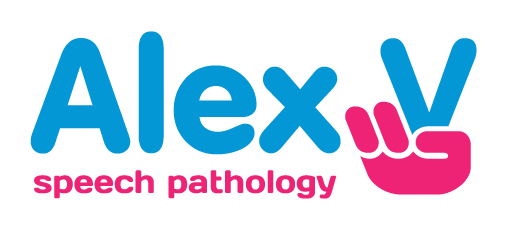If your toddler seems to have normal motor skills, cognitive skills and social skills but seems they may have trouble with language skills, Alex V. Speech Pathology can assist with Late Talkers in Brisbane and Ipswich.
Language milestones are important to your child’s speech development in their first few years of life.
Late talking is as type of speech impediment whereby a child might have normal motor skills, cognitive skills and social skills, but still have trouble with their language.
At Alex V. Speech Pathology, we can assist with the development of late talkers’ speech and endeavour to have your child’s speech developing at a similar rate other children their age. For more information about our Late Talkers’ therapy, contact one of our friendly team on (07) 3217 7037.
What is a Late Talker?
A Late Talker is a child between the age of 18-24 months that may have developed normally in all other areas such as social skills, cognitive skills and motor skills, but haven’t shown an interest in talking.
By the age of two, a child should have around 50 words in their vocabulary which they are able to put together without prompts. These should be simple two word sentences that they have come up with on their own instead of just repeating from someone, showing autonomy in their thinking.
In addition to failing to speak, a child who is a late talker will often point or use behaviour to communicate, rather than forming their words. If your child is unable to do this by the age of two, it may be a sign that they are struggling to talk and may need some assistance.
How to Tell if Your Child is a Late Talker
As a parent, it can sometimes be difficult to determine whether or not your child is a late talker. This is because all children develop at different rates, and some children simply start talking later than others; eventually developing skills without the need for speech therapy. However, the difficult thing about late talking is that there is no definite way to tell if a child will grow out of it. In light of this, it’s a good idea to book a consultation for your child with a speech therapist, even if you’re unsure whether or not your child has a serious speech delay.
If you’re concerned your child may be a late talker, contact the team at Alex V. Speech Pathology for an initial consultation.
Speech Milestones for 1-2 Year Olds
If your child is a late talker, it will become evident at around 1 ½ to 2 years of age. By 1 ½, your child should have begun talking and communicating using around 20 simple, yet different types of words in a combination of nouns, verbs, prepositions, adjectives and social words such as hi and bye, eat and sleepy, go and up, or cold and hot.
By the age of two your child should be able to use at least 100 words and combine two unique words together that haven’t been memorised. For example, your child might be able to memorise commonly used word combinations such as “bye bye”, “all gone” or “where mummy?” While this is great and shows that they know how to talk, if they’re unable to construct word combinations that aren’t from memory, it may indicate that they are a late talker. Some unique word combinations include “cat gone”, “eat cookie” or “hat on.”
At Alex V. Speech Pathology, we understand that seeking help for your child can sometimes seem intimidating. If you think your child might be a late talker, or possess some of the symptoms, contact our friendly administration team on (07) 3217 7037.
Risk factors that may suggest your child is likely to continue to have language difficulties:
A history of ear infections.
Doesn’t attempt to imitate words
Comprehension delay for age
Doesn’t use many gestures to communicate
Uses mostly nouns
Quiet as an infant
Limited consonant sounds
Difficulty playing and sharing with friends
Family history of speech delay
Treatment Styles
Depending on your child’s age, learning style and the severity of their late talking, treatment will vary. At Alex V. Speech Pathology, we always use tried and tested evidence based treatments which we believe have real success.
One of the most common late talking treatments we use is play therapy, which is always effective for very young children. Some children struggle within a clinical environment, so having play as part of their treatment disguises the element of therapy encouraging the kids really enjoy coming to the clinic.
Another treatment we use often is DIRFloortime, which is another play based therapy method, and More Than Words by Hanen, which is specifically designed for children with Autism Spectrum Disorder.
Why it’s Important to Seek Help
Seeking help for any speech impediment is vital to assist with your child’s development. It can be difficult to know if you should seek help for your child, as development varies from person to person depending on a number of factors. While this is true, we often ask parents to go with their gut and get their child checked just in case.
Left untreated, children who don’t grow out of their late talking phase will struggle to keep up with their peers, build authentic relationships and learn in school. In addition, late talking can sometimes be an indicator of a more severe speech or language issue that often only a trained Speech Pathologist can pick up.

